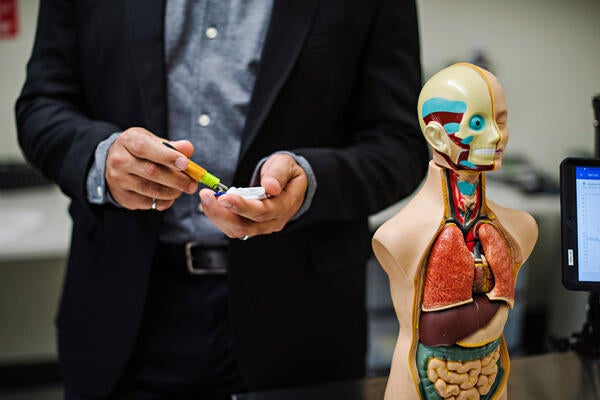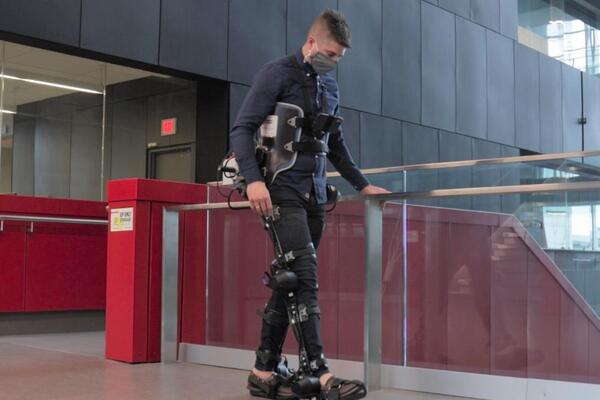
Optimizing operating room efficiency
Using machine learning to address the backlog of surgeries caused by COVID-19

Using machine learning to address the backlog of surgeries caused by COVID-19
By Jon Parsons Faculty of Mathematics
Natasha Rozario
Student, Faculty of Mathematics
David R. Cheriton School of Computer Science
“There are a lot of applications for this kind of research,” Rozario says. “Especially in a hospital where everything is based on information systems, there’s a lot of room for optimization.”
Using historical data from Oakville Trafalgar Memorial Hospital, she found that by optimizing operating room bookings, nursing overtime would have been cut by 21 per cent. That would have saved the hospital $469,000 over three years. Her findings were published in the Canadian Journal of Surgery.
Although Rozario is intrinsically motivated and the very definition of a go-getter, she also concedes that a big part of being able to contribute as a researcher is to have had doors opened for her and to be supported by Waterloo. Even before she started her undergraduate program, these supports were already happening.
“One summer in high school, I attended a catalyst summer engineering program hosted by the University,” Rozario says. “I think that was my first experience identifying real-world problems and trying to leverage technology to find solutions. Even back then, being surrounded by people from the University who were so hungry for change and innovation, I think it instilled within me this drive to succeed.”

When Rozario did take up her undergraduate studies, it was then a natural transition into computer science course work and to joining some of the clubs and student societies that allowed her to further develop her skills. In her first year, she joined the Coffee and Code Club, a semester-long workshop series, where she learned the rudiments of machine learning by building a bot to detect cyberbullying on social media platforms.
By the time she was in her second year, the star student began working and publishing with fully-fledged researchers. In her current research on optimizing operating room efficiency, Rozario says she has been supported by several faculty members — including some from outside Computer Science.
“I talked to Jason Bell, a professor in pure math, who was teaching me combinatorics and optimization at the time,” she says. “And we were talking about how one might do this mathematically. The reason the project ended up pivoting to machine learning is because it’s so optimized for identifying patterns in large amounts of data, but I definitely would not have gone there without taking the math approach in the first place.”
Along with the academic and research side of her career at Waterloo, Rozario is also keen to contribute to the business world, and specifically in businesses with a social purpose. She points to the culture of innovation and entrepreneurship that is fundamental to the Cheriton School of Computer Science and the way the entire program is essentially plugged into the Waterloo tech startup scene.
Rozario says she sees so many avenues open for her future.
“I think graduate school is an option because there’s so much I want to learn. But I also want to keep working in medtech, at the intersection of health care and computer science. I think that’s really where my future is, and I think it’s somewhere I can contribute. There’s a lot of untapped potential there.”

Read more
Smart monitoring system is designed to help caregivers identify leaks, bleeds or potential infections early

Read more
Trailblazing research is transforming the field of rehabilitation medicine by developing robotic exoskeleton legs capable of autonomous control and decision making

Read more
Researcher Suzanne Kearns pioneers the Waterloo Institute for Sustainable Aeronautics
The University of Waterloo acknowledges that much of our work takes place on the traditional territory of the Neutral, Anishinaabeg and Haudenosaunee peoples. Our main campus is situated on the Haldimand Tract, the land granted to the Six Nations that includes six miles on each side of the Grand River. Our active work toward reconciliation takes place across our campuses through research, learning, teaching, and community building, and is co-ordinated within the Office of Indigenous Relations.